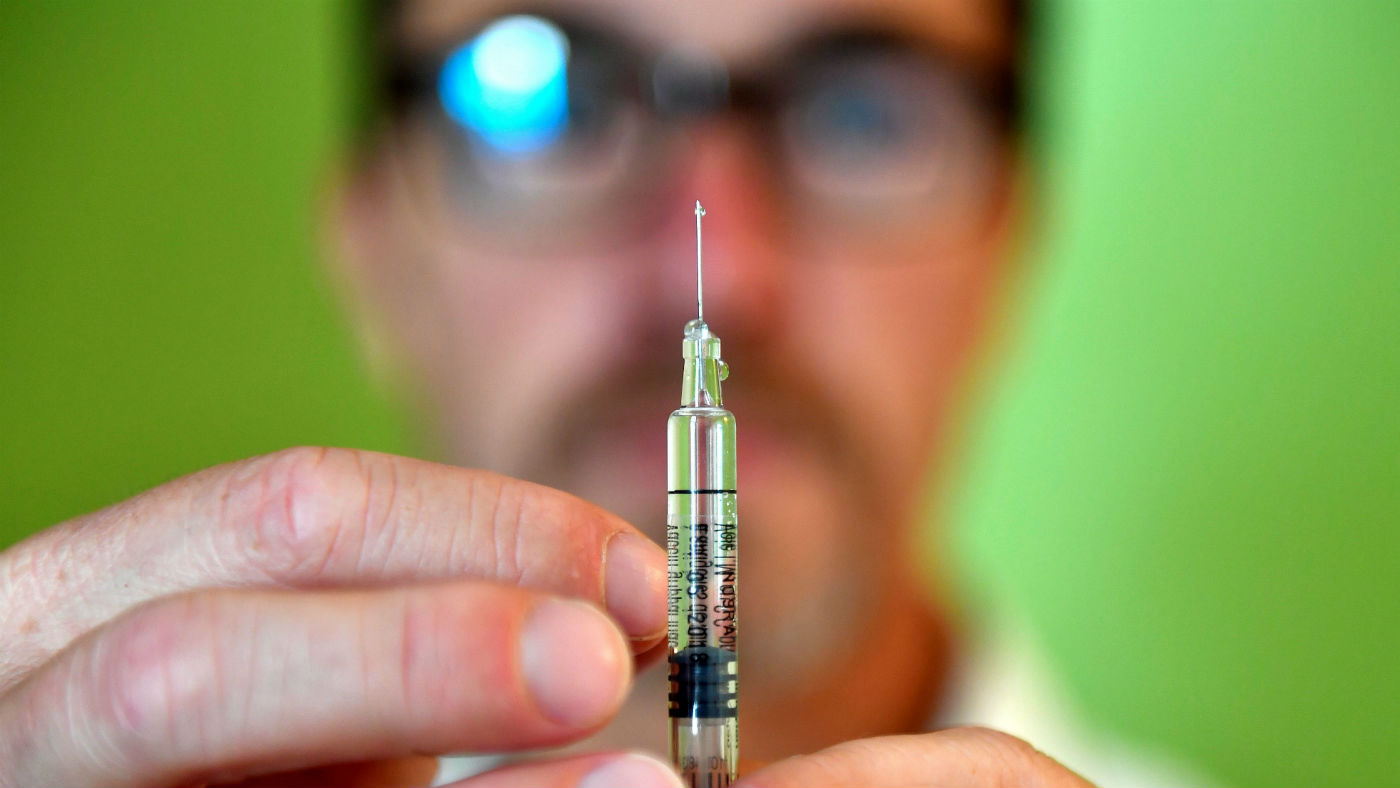No link between autism and MMR vaccine, major new study confirms
Anti-vaxxers have been blamed for global surge in measles cases

A free daily email with the biggest news stories of the day – and the best features from TheWeek.com
You are now subscribed
Your newsletter sign-up was successful
Scientists have confirmed that there is no link between autism and the MMR vaccine, in the largest ever study of its kind.
The researchers, from Statens Serum Institut in Copenhagen, looked at every child born in Denmark to Danish-born mothers between 1999 and 2000.
The 657,461 children were tracked from the age of one until 2013, during which period more than 95% of the children received the measles, mumps and rubella (MMR) vaccine, and 6,517 were diagnosed with autism spectrum disorder, CNN reports.
The Week
Escape your echo chamber. Get the facts behind the news, plus analysis from multiple perspectives.

Sign up for The Week's Free Newsletters
From our morning news briefing to a weekly Good News Newsletter, get the best of The Week delivered directly to your inbox.
From our morning news briefing to a weekly Good News Newsletter, get the best of The Week delivered directly to your inbox.
After factoring in known risk factors including age of the parents, diagnosis of autism in a sibling, preterm birth and low weight at birth, the researchers concluded that the MMR vaccine did not increase the risk of autism in children who were not considered at risk for the disorder, and did not trigger it in those who were.
In fact, although no causal link was established by the study - outlined in a paper in the journal Annals of Internal Medicine - the scientists found that children who had been given the MMR vaccination were 7% less likely to be diagnosed with autism than those who did not get the jab, The Daily Telegraph reports.
“The study strongly supports that MMR vaccination does not increase the risk for autism, does not trigger autism in susceptible children, and is not associated with clustering of autism cases after vaccination,” the study says. “We believe our results offer reassurance and provide reliable data.”
The new study further disproves the controversial findings of gastroenterologist Andrew Wakefield, who hypothesised in a 1998 paper that the MMR vaccine was linked to autism. “Symptoms of the condition often begin to manifest at about the time the jab is given, between 12 and 15 months old”, leading some parents to conclude that his theory might be correct, says The Guardian.
A free daily email with the biggest news stories of the day – and the best features from TheWeek.com
In the ensuing scare, “one in five children missed out on the vaccination”, adds the Telegraph. Wakefield’s paper was later withdrawn and in 2010 he was struck off the medical register.
The new Danish study has been welcomed by Paul Offit, director of the Vaccine Education Center at Children’s Hospital of Philadelphia, who said it backs up the findings of previous research.
“At this point, you’ve had 17 previous studies done in seven countries, three different continents, involving hundreds of thousands of children,” Offit said. “I think it’s fair to say a truth has emerged.”
Nevertheless, the number of children in the UK having MMR vaccinations has been “falling for years”, the Daily Mail reports. And recent analysis from Unicef shows that measles cases increased by 48.4% worldwide between 2017 and 2018.
Just ten countries, including Brazil, the Philippines and France, accounted for “nearly three-quarters of the total increase in measles cases in 2018”, notes CNN.
-
 How the FCC’s ‘equal time’ rule works
How the FCC’s ‘equal time’ rule worksIn the Spotlight The law is at the heart of the Colbert-CBS conflict
-
 What is the endgame in the DHS shutdown?
What is the endgame in the DHS shutdown?Today’s Big Question Democrats want to rein in ICE’s immigration crackdown
-
 ‘Poor time management isn’t just an inconvenience’
‘Poor time management isn’t just an inconvenience’Instant Opinion Opinion, comment and editorials of the day
-
 Epstein files topple law CEO, roil UK government
Epstein files topple law CEO, roil UK governmentSpeed Read Peter Mandelson, Britain’s former ambassador to the US, is caught up in the scandal
-
 Iran and US prepare to meet after skirmishes
Iran and US prepare to meet after skirmishesSpeed Read The incident comes amid heightened tensions in the Middle East
-
 Israel retrieves final hostage’s body from Gaza
Israel retrieves final hostage’s body from GazaSpeed Read The 24-year-old police officer was killed during the initial Hamas attack
-
 China’s Xi targets top general in growing purge
China’s Xi targets top general in growing purgeSpeed Read Zhang Youxia is being investigated over ‘grave violations’ of the law
-
 Panama and Canada are negotiating over a crucial copper mine
Panama and Canada are negotiating over a crucial copper mineIn the Spotlight Panama is set to make a final decision on the mine this summer
-
 Why Greenland’s natural resources are nearly impossible to mine
Why Greenland’s natural resources are nearly impossible to mineThe Explainer The country’s natural landscape makes the task extremely difficult
-
 Iran cuts internet as protests escalate
Iran cuts internet as protests escalateSpeed Reada Government buildings across the country have been set on fire
-
 US nabs ‘shadow’ tanker claimed by Russia
US nabs ‘shadow’ tanker claimed by RussiaSpeed Read The ship was one of two vessels seized by the US military